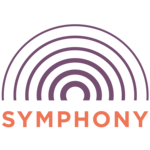An analysis of gender differences in industry-based certification attainment rates of Texas high school graduates
DOI:
https://doi.org/10.70116/2980274123Keywords:
College, career, and military readiness, Gender, Industry-based certification, Texas Education AgencyAbstract
In this statewide, multiyear study, industry-based certification attainment rates were examined by gender for Texas high school graduates. Industry-based certifications included in the study were vetted by the Texas Education Agency and reported through the Texas Academic Performance Reports for the 2019-2020, 2020-2021, and 2021-2022 school years. Inferential analyses revealed statistically significant differences in industry-based certification attainment rates for each of the three school years of data analyzed. Both boys and girls demonstrated increases in certification attainment across the years analyzed; however, the attainment rate of Texas male high school graduates increased at a faster rate than the attainment rate of Texas female high school graduates. Differences in attainment rates and associated attainment gaps between male and female graduates are presented for each of the three school years of data analyzed, as well as recommendations for future research.
Downloads
References
AlMalki, H. A., & Durugbo, C. M. (2023). Evaluating critical institutional factors of Industry 4.0 for education reform. Technological Forecasting & Social Change, 188(2023), 1-13. https://doi.org/10.1016/j.techfore.2023.122327
Bühler, M. M., Jelinek, T., & Nübel, K. (2022). Training and preparing tomorrow’s workforce for the fourth industrial revolution. Education Sciences, 12(782), 1-28. https://doi.org/10.3390/educsci12110782
Burillo, M. (2012). Marketable skills achievement awards certificate completer trends by ethnicity and gender at Texas community colleges (Unpublished doctoral dissertation). Sam Houston State University, Huntsville, TX.
Casto, A. R. & Williams III, J. A. (2020). Seeking proportionality in the North Carolina STEM pipeline. The High School Journal, 103(2), 77-98. https://www.jstor.org/stable/26986615
Cohen, J. (1988). Statistical power analysis for the behavioral sciences (2nd ed.). Lawrence Erbaum.
Combs, J. P., Slate, J. R., Moore, G. W., Bustamante, R. M., Onwuegbuzie, A. J., & Edmonson, S. L. (2010). Gender differences in college preparedness: A statewide study. Urban Review, 42, 441-457. https://doi.org/10.1007/s11256-009-0138-x
Conley, D. T. (2008). Rethinking college-readiness. New England Journal of Higher Education, 22(5), 24-26. https://files.eric.ed.gov/fulltext/EJ794245.pdf
Davis, C. M., Slate, J. R., Moore, G. W., & Barnes, W. (2013). College readiness and Black student performance: Disaffirmed equity. The Online Journal of New Horizons in Education, 3(4), 23-44.
Field, A. (2018). Discovering statistics using SPSS (5th ed.). Sage.
Fluhr, S. A., Choi, N., Herd, A., Woo, H., & Alagaraja, M. (2017). Gender, career and technical education (CTE) nontraditional coursetaking, and wage gap. The High School Journal, 100(3), 166-182. https://www.jstor.org/stable/90024210
Giani, M. (2022). Certified skills: Who earns industry-based certifications in high school, and how do they shape students’ postsecondary education and employment outcomes? The University of Texas at Austin: Texas Education, 1-7. Retrieved 19 January, 2024 from https://texaserc.utexas.edu/wp-content/uploads/2022/04/141-UTA148-Brief-Certifications-4.6.22-REV.pdf
Holman, A. G., Kupczynski, L., Mundy, M-A., & Williams, R. H. (2017). CTE students’ perceptions of preparedness for post-secondary opportunities. The CTE Journal, 5(2), 8-23.
Jiang, L. (2017). Why are some STEM fields more gender balanced than others? Psychological Bulletin, 143(1), 1-35. http://dx.doi.org/10.1037/bul0000052
Johnson, R. B., & Christensen, L. (2020). Educational research: Quantitative, qualitative, and mixed methods approaches (7th ed.). Sage.
Johnson, T. (2020). Comparison of proportion of Texas campus college, career, and military readiness of all students to the proportion of Texas campus college, career, and military readiness by ethnicity/race, gender, and economic status: A Texas statewide study (Unpublished doctoral dissertation). Sam Houston State University, Huntsville, TX.
Leu, K. B., & Arbeit, C. A. (2020). Differences in high school CTE coursetaking by gender and race/ethnicity. Career and Technical Education Research, 45(1), 33-61. https://doi.org/10.5328/cter45.1.33
Li, L. (2022). Reskilling and upskilling the future-ready workforce for industry 4.0 and beyond. Information Systems Frontier: A Journal of Research and Innovation, 1-16. https://doi.org/10.1007/s10796-022-10308-y
Texas Education Agency. (2022). 2021-22 Texas academic performance report (TAPR) glossary. Retrieved 3 February, 2024 from https://rptsvr1.tea.texas.gov/perfreport/tapr/2022/glossary.pdf
Texas Education Agency. (n.d.). Career and technical education. https://tea.texas.gov/academics/college-career-and-military-prep/career-and-technical-education
Yoon, S. Y., & Strobel, J. (2017). Trends in Texas high school student enrollment in mathematics, science, and CTE-STEM courses. Journal of STEM Education, 4(9), 1-23. https://doi.org/10.1186/s40594-017-0063-6
Downloads
Published
How to Cite
Issue
Section
License
Copyright (c) 2024 Symphony

This work is licensed under a Creative Commons Attribution 4.0 International License.














